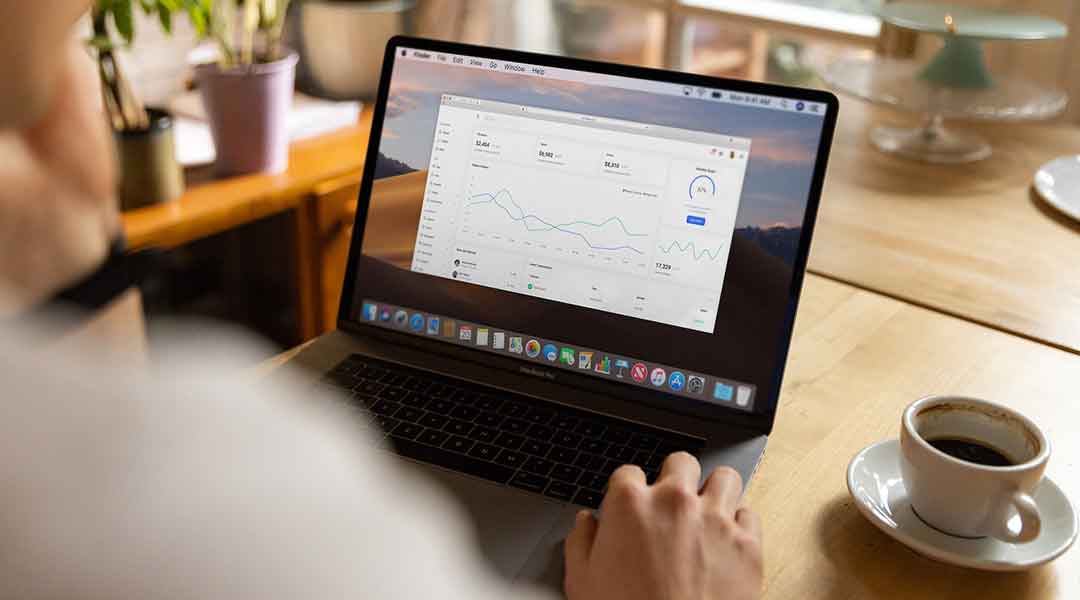Embracing AI in influencer marketing can drive your brand’s reach to new heights. By leveraging AI, you can identify the perfect influencers for your campaigns. Further, it allows for precise target audience identification with much-needed accuracy and efficiency.
The key lies in understanding these technologies: their capabilities, the benefits they bring, and knowing how best to integrate them into existing strategies.
The Significance of AI in Influencer Marketing
The significance of AI in influencer marketing cannot be overstated in today’s digital landscape. AI, or Artificial Intelligence, has revolutionized how businesses approach influencer collaborations and has become an indispensable tool for marketers. Here are some key points that highlight the significance of AI in influencer marketing:
- Data-Driven Decision Making: AI enables marketers to make data-driven decisions by analyzing vast amounts of data in real-time. This data includes audience demographics, engagement metrics, and historical campaign performance. This leads to more informed influencer selection and campaign strategies.
- Efficient Influencer Discovery: AI-driven tools can efficiently identify potential influencers from the vast pool of social media users. These tools consider factors like follower count, engagement rates, niche relevance, and historical performance to find the best-fit influencers for a brand.
- Audience Segmentation: AI helps segment and better understand the audience of influencers. This allows brands to target their campaigns more precisely, ensuring that the content reaches the right demographics and psychographics.
- Content Optimization: AI can sometimes suggest content ideas and headlines and even generate content. It uses predictive analytics to understand what types of content resonate with an influencer’s audience, leading to more engaging and effective campaigns.
- Fraud Detection: AI algorithms can detect fraudulent activities such as fake followers, engagement manipulation, and sponsored content that lacks transparency. This ensures that brands collaborate with genuine influencers, protecting their reputation and investments.
- Real-time Monitoring: AI enables real-time monitoring of influencer campaigns. Marketers can track engagement, sentiment, and reach as the campaign unfolds, allowing for quick adjustments and optimizations to maximize impact.
- ROI Measurement: AI tools provide sophisticated analytics for measuring the ROI of influencer campaigns. Marketers can attribute conversions, track sales, and assess the overall impact of influencer collaborations accurately.
- Personalization: AI helps in creating personalized experiences for consumers through influencer marketing. By analyzing individual preferences and behavior, brands can tailor influencer partnerships and content to match the needs and desires of their target audience.
- Scalability: AI makes it possible to manage multiple influencer campaigns simultaneously. This scalability is crucial for brands looking to expand their reach and engage with a broader audience through various influencers.
Identifying the Right Influencers with AI
You know the drill: you’re scrolling through social media when something catches your eye. It’s a post from an influencer you admire, and they’re promoting a product or brand that fits perfectly into your lifestyle interests. These influencers can significantly impact our buying decisions with their persuasive posts about products we may never have considered before seeing them endorsed by these digital celebrities.
But how do brands choose the right influencers to engage? Not just anyone will deliver excellent results; it requires careful consideration of several factors, such as audience engagement rates, follower demographics, and personal branding alignment. This is where AI comes in handy!
With AI technology’s help, like machine learning algorithms analyzing enormous volumes of data on various platforms, identifying suitable influencer candidates becomes less complicated. Predicting potential reach for creative campaigns undertaken using real-time analytics also becomes feasible, making effective strategy planning easier than ever!
Content Optimization through AI
Consider this as you embark on the journey of AI-aided influencer marketing: content optimization. Artificial intelligence takes a front seat here, paving your path to exceptional precision targeting and engagement maximization results. Utilizing cognitive systems can yield deep insights into what resonates with your audience.
This data analysis capability helps tailor high-performing posts that match individual viewer preferences. Artificial Intelligence doesn’t only optimize written text; it enhances visual elements, too! Advanced algorithms analyze images or videos for contextual relevance, optimizing everything from color scheme down to font size!
AI’s ability to deliver personalized viewing experiences boosts interaction rates. These tailored feeds make viewers feel acknowledged, fostering stronger connections that translate into positive brand sentiment.
However, artificial intelligence is just one facet of an integrated approach toward digital dominance; human creativity holds irreplaceable worth despite technological advancements.
Enhancing Influencer Marketing Campaigns with AI
You can’t ignore the transformative role of AI in influencer marketing. AI technology helps to refine and amplify your campaigns. It sifts through vast digital landscapes, identifying trends faster than anyone could. One key area where AI excels is predictive analysis, foreseeing consumer behavior based on past actions or preferences. Using these predictions, you can tailor content that resonates with potential customers’ needs before they even realize it themselves.
Another significant benefit of integrating AI into influencer marketing strategy is its ability to assist in precise targeting by analyzing data from various sources such as social media profiles, purchase histories, and browsing habits. A more accurate image of every prospective customer emerges, which allows for highly personalized engagement strategies. They should consider the potential time savings that can be achieved by leveraging software powered by machine learning algorithms for scheduling posts at optimal times.
This is compared to manual post-scheduling based on guesswork work, which would be time-consuming. Finally, it is important to reflect on the opportunities presented by these tools and their potential impact on achieving success.
Measuring ROI and Effectiveness with AI
In influencer marketing, AI technology goes beyond identifying suitable influencers for campaigns; you may leverage it to scrutinize their content and performance continuously, ensuring that the individuals chosen align perfectly with your brand’s essence.
Moreover, one of AI’s most valuable roles is providing real-time feedback through campaign tracking tools. This allows marketers to gauge effectiveness promptly and adjust outreach strategies during ongoing endeavors swiftly – a feat tough to achieve manually.
Whether ascertaining initial compatibility between brands and influencers or monitoring engagements in progress, advanced algorithms’ prowess is invaluable.
Challenges and Limitations of AI in Influencer Marketing
Despite AI’s potential for enhancing influencer marketing, some hurdles exist. For instance, while AI analyzes vast sums of data quickly and effectively than humans can, it falls short of understanding the nuances that define human interactions and responses. This could negatively impact the success of an influencer campaign.
This limitation may have a negative effect on campaign optimization. Automation cannot always pick up on subtle, clever influencer content that could benefit a campaign. If too much reliance is placed on automated systems, it’s possible that potential influencers who have smaller but highly engaged followings will go unnoticed. As a result, this could damper the overall outcomes of an influencer campaign.
Additionally, getting accurate predictive analysis is sometimes tricky, even for advanced AI systems, due to rapidly changing consumer behavior patterns or unforeseen external factors at play, like global events affecting social media trends.
Lastly, it is important to consider the cost implications of incorporating new technologies. This may prove to be a challenge for small businesses as they straddle the line between using artificial intelligence tools and leveraging the power of human connection in successful campaigns involving influencers. It is important to strike an optimal balance between the two.
Future Trends in AI and Influencer Marketing
As you continue to explore AI’s role in influencer marketing, consider how advancements will shape future trends. For instance, virtual influencers are becoming a fascinating development. They don’t pick favorites or have biases; they are data-trained models that simulate human interaction brilliantly.
Simultaneously, these AI-powered personalities offer exciting growth avenues for marketers due to the unique balance between scalability (courtesy of technology) and relatability (an essential aspect of successful influencer marketing). Collaboration possibilities between real-life influencers and their virtual counterparts could redefine this sphere further!
Remember that exploration is key here; harnessing new breakthroughs in AI can open doors previously unimagined within influencer marketing!
With constant digital information influx, marketers can easily feel overwhelmed. Nevertheless, with AI at your side, you can process more data effectively than ever! Google already uses this technology for data analytics; it helps find suitable content and expose trends, a hint that’s hard to ignore. Moreover, tiring, repetitive tasks are a major part of content marketing, which often don’t involve creativity and originality but require ample time. That’s where artificial intelligence comes into play.
Allowing an algorithm pattern learning tool saves both energy and cognitive load as well. To stay ahead in today’s competitive market environment while keeping up with weekly or even daily fresh ideas is no easy feat.
This is an assertive reason why many savvy entrepreneurs choose to work closely alongside dependable Artificial Intelligence-powered Digital Marketing Companies. To tap into influencer marketing’s potential, harness the power of AI. Artificial intelligence can help identify ideal influencers while ensuring authentic engagement with your brand’s audience. Explore analytics to track campaign results in real-time, and monitor ROI effectively using machine learning algorithms.
Remember, combining human creativity and machine efficiency crafts a compelling marketing strategy that reigns supreme.









